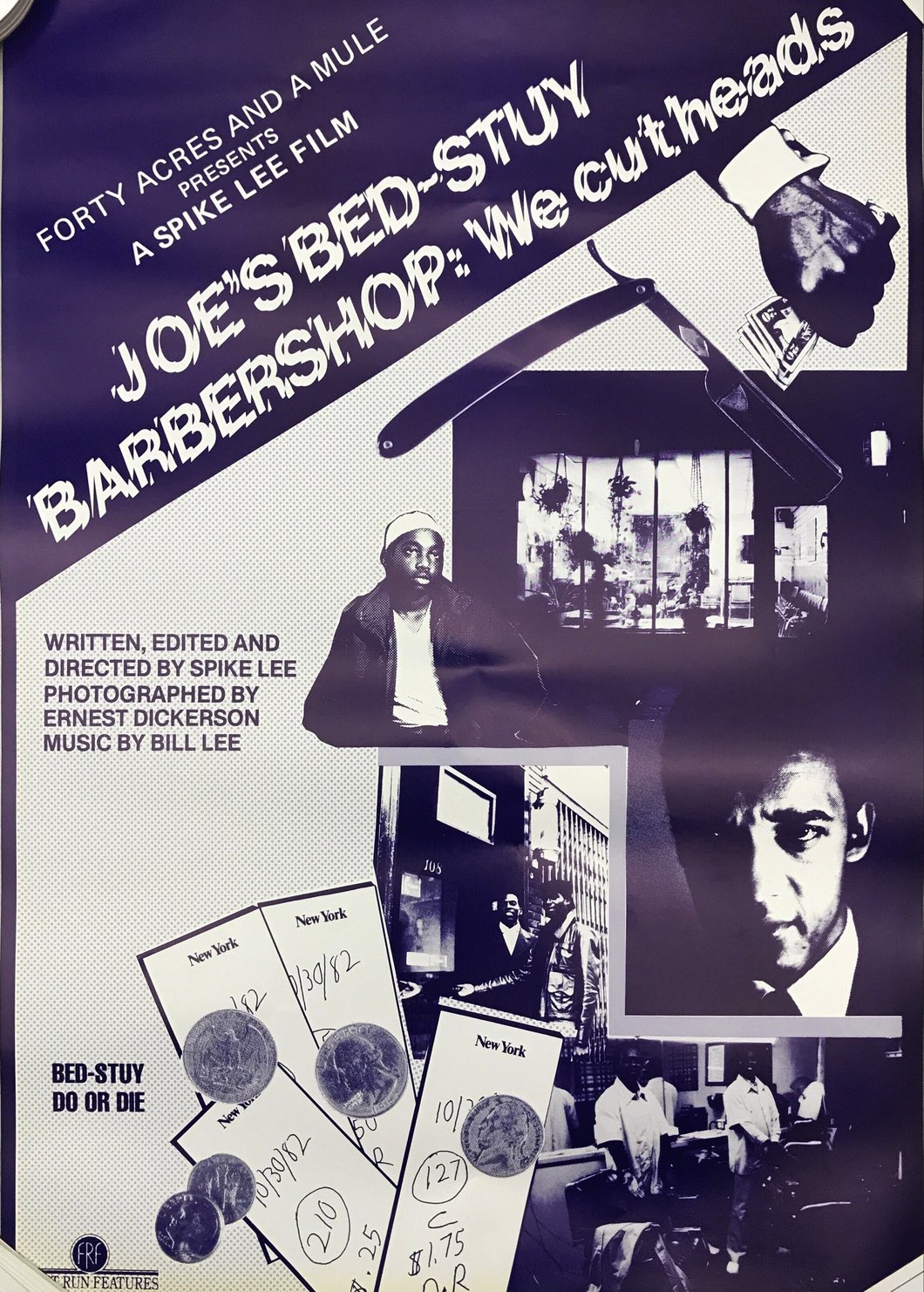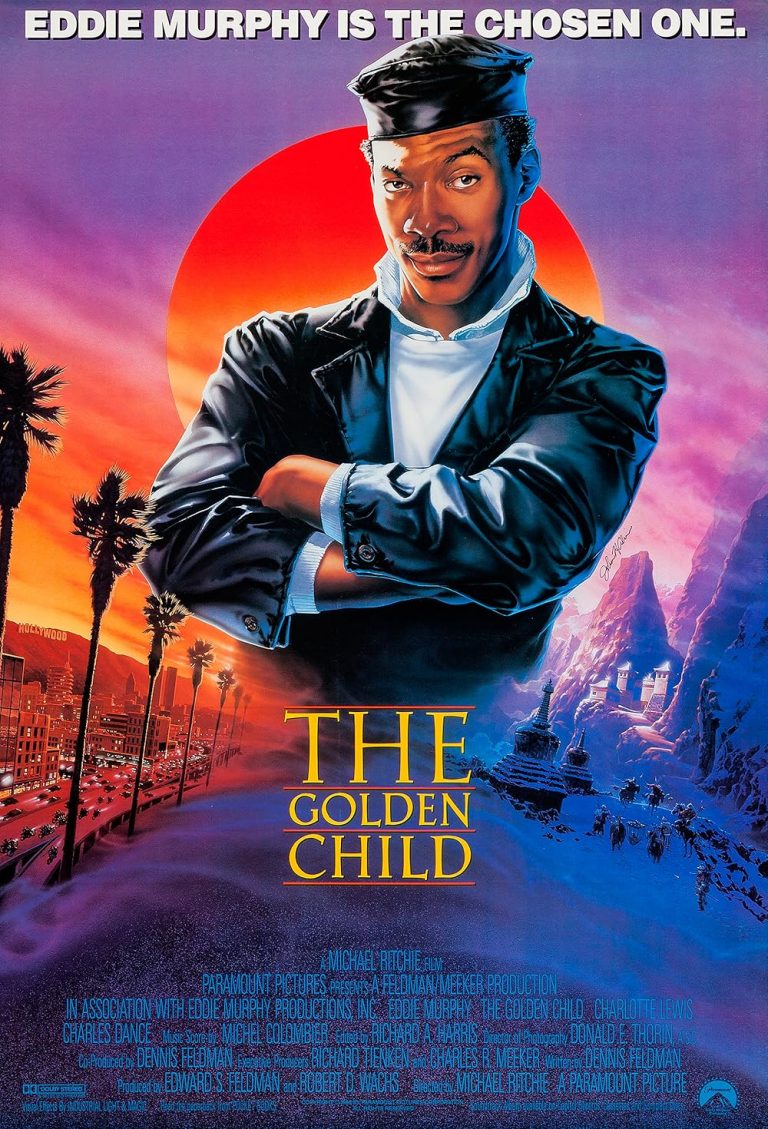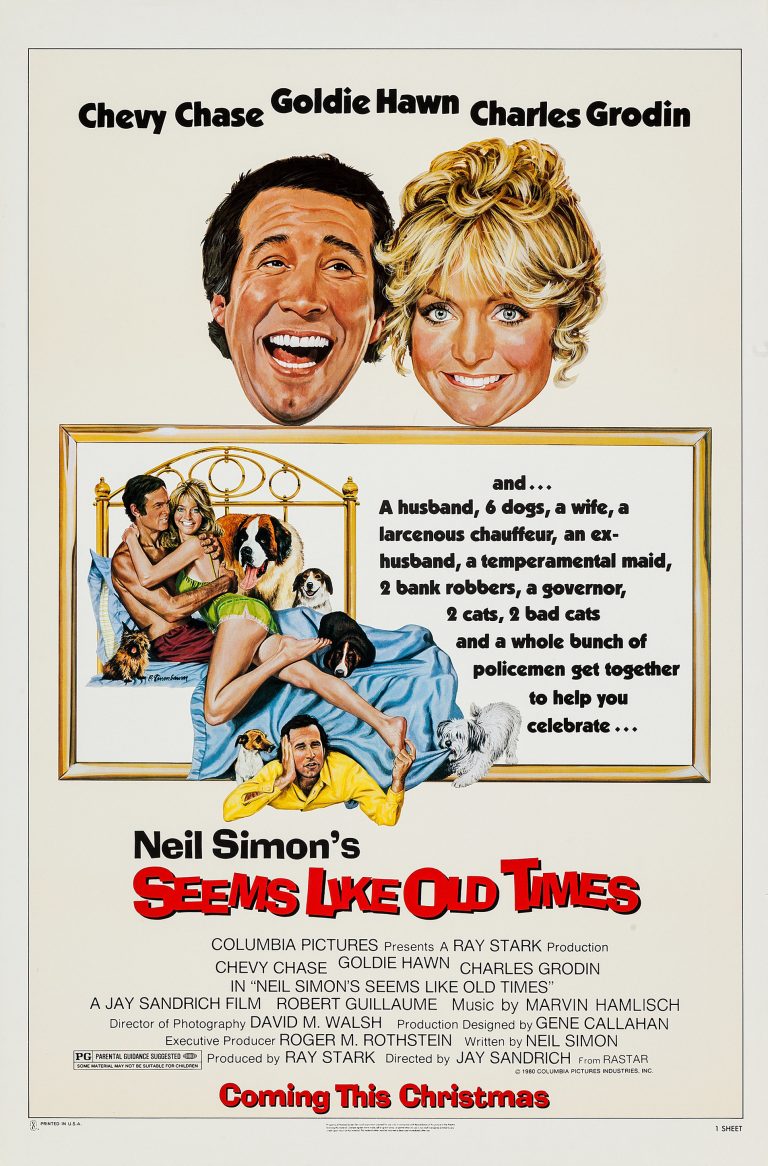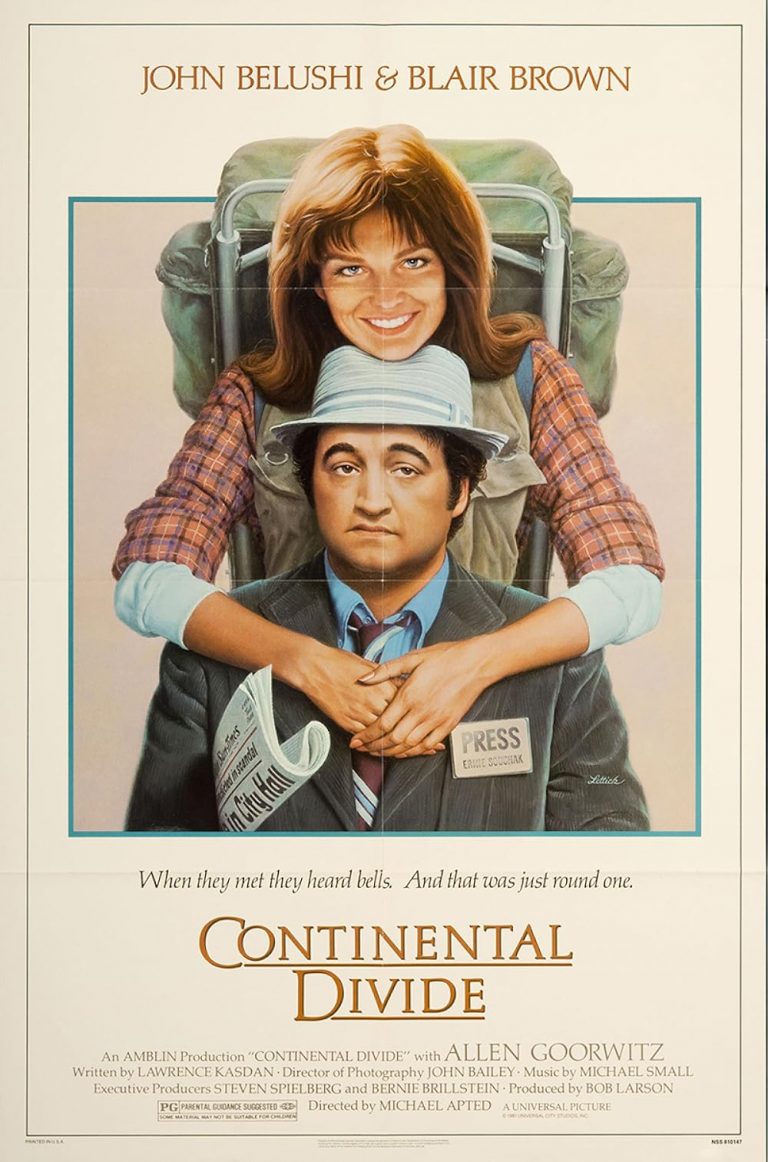Starring: Monty Ross and Tommy Redmond Hicks
Grade: F
Being a Spike Lee fan, I had to check this one out. This was the student film he submitted as his thesis at the Tisch School of the Arts. It even won him a Student Academy Award.
Summary
At Joe’s Bed-Stuy Barbershop in Brooklyn, New York, Joe (Horace Long) closes up for the night and is approached by gangsters who tell him to get in the car. They drive him near the ocean and demand the money he took from Nicholas Lovejoy (Hicks). He gives it to them and pleads with them to not kill him. Sadly, it’s too late. They tie some cinder blocks to Joe and dump him into the water.
Sometime after Joe’s death, Zack Homer (Ross), a barber who opened the shop with Joe, argues with his wife Ruth (Donna Bailey) over what to do with the place now that Joe is gone. She wants him to sell it, but he refuses because he can still run the business without him. The problem is that the barbershop has been used more as a front for a numbers racket business rather than a place to get a haircut. Zack wants to run things straight though and intends on fulfilling this promise. Zack goes through his workday and a regular named Fletcher (Robert Delbert) stops in for a shave. Fletcher is quick to point out how well Joe knew his numbers, but Zack reminds him that it got Joe killed. They discuss how Zack plans on keeping the barbershop open for as long as he can, so the customer decides to give him a tip without even getting his shave and leaves. At home, Ruth tells Zack she was by the shop and saw how empty it was after he jokingly says how well they did today, though it turns playful as they start to kiss.
Now, Ruth is some sort of guidance counselor. At work, they send in a troubled kid named Thaddeus, who garners the nickname “Teapot” (Stuart Smith), to see her and she realizes he needs a sense of direction. Though Zack isn’t keen on the idea, she has Teapot work at the barbershop with him. After an iffy start, Zack and Teapot seem to bond and mesh well with each other on Teapot’s first day. Later, Ruth goes to the projects to meet with a client’s mother. Meanwhile, the gangsters that killed Joe in the opening show up at the barbershop and wake up Zack who was napping in one of the chairs. Once he refuses to go with them, they beat him up and take him to officially meet Nicholas Lovejoy. He runs the numbers in Bed-Stuy. Lovejoy points out that the barbershop is located in one of the busiest corners in the neighborhood, and he wants to work with Zack on running his business through Zack’s shop. The only reason Joe was killed was because he was stealing from Lovejoy. They can have a real partnership as long as Zack doesn’t mess around. Lovejoy even says the cops are all taken care of, so there’s no worry. Even though he knows Lovejoy is no good, Zack isn’t doing great financially. He has no choice. He accepts his proposition.
Though business heats up, Zack has trouble with how deep he’s getting.
My Thoughts:
It’s pretty unfair for me to give a student film such a low grade, as we know Spike Lee is working with a small budget, a small landscape, and a story that centers around his limited resources. Even so, I have to grade everything on Cinema Loco honestly. Being a big fan of Lee, it pains me to say Joe’s Bed-Stuy Barbershop: We Cut Heads bored me to death.
It’s slowly-paced (felt like the longest hour of my life), the story is boring, the jokes aren’t funny, the scripted conversations are predictable (minus the ending), Ruth is annoying, and the acting is stilted and unemotional. This is especially true regarding Monty Ross who only shows enthusiasm or energy of any kind when he’s reacting to Teapot. Tommy Redmond Hicks’s odd way of speaking is the only thing that works as he does sound like an intimidating gangster. The rest of this movie is very raw. Then again, it is a student film. It’s going to be a little rough around the edges. Spike Lee didn’t become the Spike Lee we know today overnight. It took some time to cultivate his signature style and center his creative mind.
Despite the small budget, he’s still able to make a feature that looks like it came straight out of the 70s. This is an accomplishment in itself. Knowing Lee, I would pass this off as a stylistic choice, but we know damn well it was because of the budget. Along with a nice jazzy soundtrack composed by his father Bill, you can still see the skeletal outline of what Spike Lee’s movies would become, and it’s cool to try and pick bits and pieces of it out to see how it inspired some of his later work. You can feel it in the vibe of the film as a whole, the creative character names, the violence, the ode to Brooklyn, and the conversations and highlighted scenes dedicated to African American culture. They all become trademarks of Lee’s style. Even if I may not have liked the movie, anyone could see the future was bright for the young filmmaker.
Joe’s Bed-Stuy Barbershop: We Cut Heads is a thesis film, and as a thesis film, I would imagine that this probably trumped the competition and earned its praise. As a regular film, it’s not the Lee we’re accustomed to, and we know why. I wouldn’t recommend this to anyone unless you’re a cinephile, a huge Spike Lee fan that can’t get enough of him, or a college student studying film. Besides this, I wouldn’t tell anyone to watch Joe’s.
It is however, a piece of film history worth watching to see one of cinema’s most enigmatic storytellers right before he got his big break. So, despite its grade, it has its charm.





+ There are no comments
Add yours